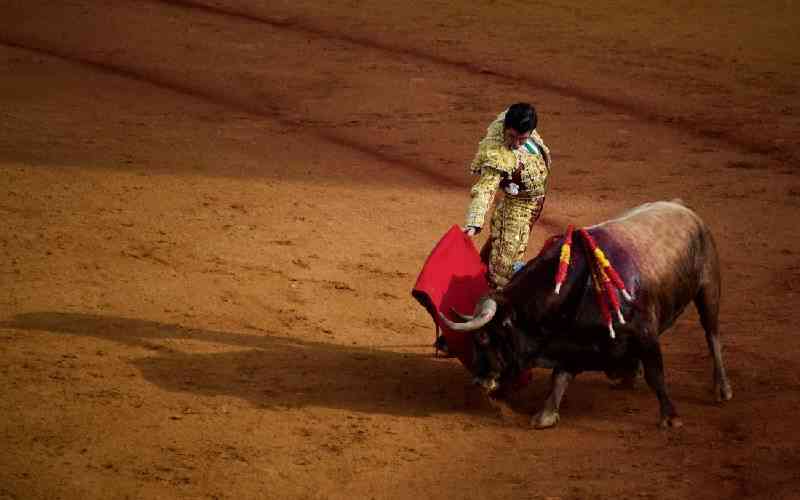×
The Standard e-Paper
Smart Minds Choose Us

Spain's left-wing government said on Friday it would scrap a national prize for bullfighting, a move which angered supporters of the controversial spectacle but was welcomed by animal rights groups.
"A growing majority" of Spaniards are concerned about animal welfare, so "we did not believe it is appropriate to maintain an award that rewards a form of animal abuse", said Culture Minister Ernest Urtasun, who belongs to hard-left party Sumar, Socialist Prime Minister Pedro Sanchez's junior coalition partners.